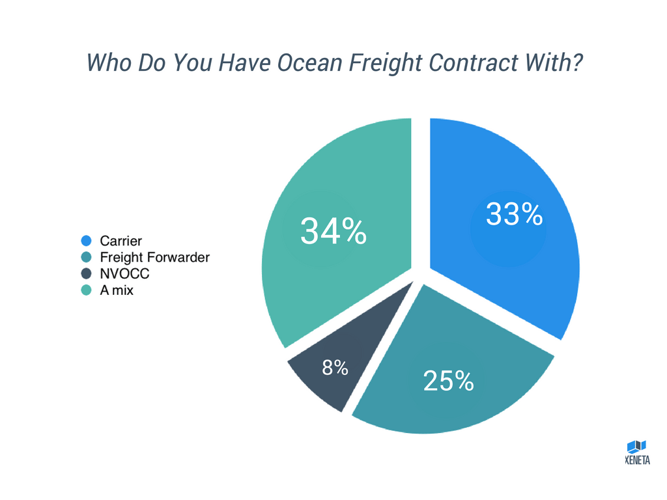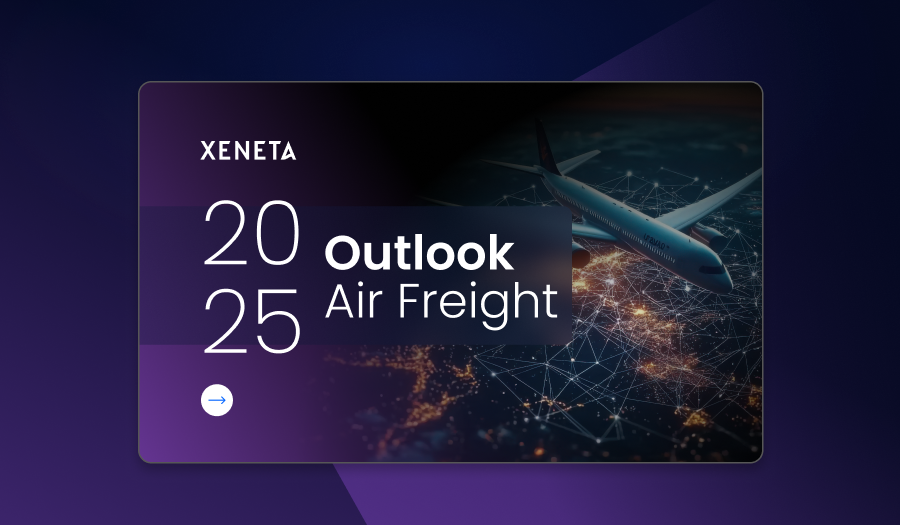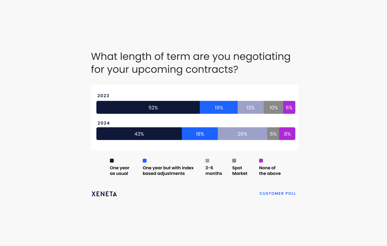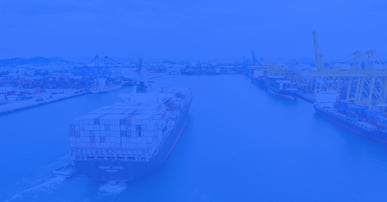Ocean freight negotiations are a source of constant tussle between shippers and their service providers. This is especially true, post 2008 where the freight rates have been on a roller coaster ride making it very difficult to work with fixed shipping costs. The volatility of the ocean freight rates may also depend on “who” the shipper has entered into an ocean freight contract with. We asked our social media community who they have their ocean freight contracts with.
A shipper may decide to have a contract either directly with the carrier or with an OTI (Ocean Transport Intermediary) such as a Freight Forwarder or an NVOCC.
Our survey revealed that 33% of shippers have ocean freight contracts with a Carrier directly and a collective 33% (25% with Freight Forwarder and 8% with NVOCC) had ocean freight contracts with an OTI and 34% had an ocean freight contract with a mixture of the above.

Definitions
A Carrier maybe defined as an entity who undertakes to perform, directly or indirectly the carriage of cargo by sea, rail, road, air, inland waterway or a combination of these modes, normally under a contract of carriage.
A Freight Forwarder is someone who undertakes to handle the movement of goods from point to point on behalf of the cargo owner and assists a customer using their experience of global and local transportation, global and local infrastructure and freight documentary requirements.
A NVOCC, an abbreviation for Non-Vessel Operating Common Carrier, is an entity whose functional activities overlap that of a freight forwarder in some cases and a carrier in some cases, hence may be defined as a “carrier to shippers” and “shipper to carriers”.
An OTI is a collective term for a Freight Forwarder and NVOCC who while providing their individual services to the clients, are ultimately dependent on the carrier for the movement of their cargo.
Related reading: How To Excel In Your Freight Rate Negotiation
How To Get The Best Results
Depending on who you ask, the thought is that shippers should have their ocean freight contract with carriers for best results and cost savings, and forget the middlemen.
The reality, like our survey results show, is not like that at all.
Freight forwarders are not just middlemen whose only role is to connect the customer to the carrier and vice versa. As noted in a previous blog post, freight forwarders that either access NVOCCs, or is an NVOCC, specialize in taking the hassle out of logistics, and offer up long list of value added services such as real time visibility, guaranteed on-time delivery, port-to-port deliveries and more.
As for the carriers, The Loadstar recently quoted Rolf Niese, until recently head of logistics operations at British American Tobacco saying “Shipping lines needed to imitate freight forwarders and offer a greater range of services, as well as differentiate their offering from competitors.”
Each freight business and shipment is different and there is no fixed formula or a one-size-fits all solution for ocean freight contract negotiation. Therefore, in their own interest, it would be prudent for shippers to look at which solution fits them best, whether it is a direct contract with a carrier or a contract with an OTI or a mixture of both within their various businesses.
Let us know what you think. Also, stay up to date to industry news and trends by subscribing to our blog on the top right of this page.
Get Better Visiblity into Your Ocean Freight Rates
Find out how your ocean freight rates per supplier are performing against the market prices. Have a look at our webinars and learn how benchmarking your ocean freight rates gives you transparency into your logistics and supply chain flow.
Related reading: Big Volume Shipping No Longer Means Big Value Rates


-1.jpg)



